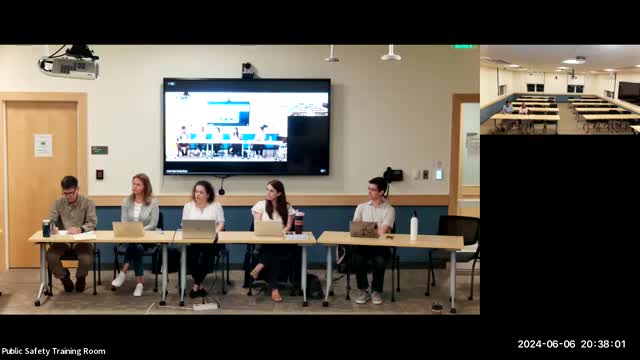Tensions Rise Over Community Preservation Committee Reappointments
June 10, 2024 | Town of Southborough, Worcester County, Massachusetts

This article was created by AI summarizing key points discussed. AI makes mistakes, so for full details and context, please refer to the video of the full meeting. Please report any errors so we can fix them. Report an error »

In a recent government meeting, members of the Community Preservation Committee (CPC) expressed concerns regarding their reappointment process and the perceived influence of the select board over independent committees. The discussion highlighted tensions between the CPC's role and the expectations set by the select board, particularly regarding policy implementation.
One key issue raised was the lack of clarity surrounding the legal status of a property under Chapter 61, which governs land use and preservation. Committee members questioned whether the town could engage with property owners if no bona fide offer had been made, emphasizing the need for legal guidance on the matter. This uncertainty could impact potential partnerships for land acquisition and preservation efforts.
The reappointment of three CPC members—Kristen, Lisa, and another unnamed member—was also a focal point. During the select board hearing, concerns were voiced about the committee's independence and its obligation to adhere to the select board's policies. One member, Mr. Hamilton, argued that the select board should dictate the policies for all appointed committees, a stance that was met with resistance from CPC members who asserted their commitment to the town's bylaws and the Community Preservation Act.
CPC members defended their autonomy, stating that their role is to study and address the community's preservation needs without being beholden to the select board's agenda. They emphasized that their appointments should not hinge on alignment with the select board's views, arguing that such a requirement would undermine the committee's purpose and effectiveness.
The meeting concluded with a commitment from CPC members to continue advocating for their independence while remaining open to improving their operations. The discussions reflect ongoing challenges in balancing governance and community representation within local government structures.
One key issue raised was the lack of clarity surrounding the legal status of a property under Chapter 61, which governs land use and preservation. Committee members questioned whether the town could engage with property owners if no bona fide offer had been made, emphasizing the need for legal guidance on the matter. This uncertainty could impact potential partnerships for land acquisition and preservation efforts.
The reappointment of three CPC members—Kristen, Lisa, and another unnamed member—was also a focal point. During the select board hearing, concerns were voiced about the committee's independence and its obligation to adhere to the select board's policies. One member, Mr. Hamilton, argued that the select board should dictate the policies for all appointed committees, a stance that was met with resistance from CPC members who asserted their commitment to the town's bylaws and the Community Preservation Act.
CPC members defended their autonomy, stating that their role is to study and address the community's preservation needs without being beholden to the select board's agenda. They emphasized that their appointments should not hinge on alignment with the select board's views, arguing that such a requirement would undermine the committee's purpose and effectiveness.
The meeting concluded with a commitment from CPC members to continue advocating for their independence while remaining open to improving their operations. The discussions reflect ongoing challenges in balancing governance and community representation within local government structures.
View full meeting
This article is based on a recent meeting—watch the full video and explore the complete transcript for deeper insights into the discussion.
View full meeting
